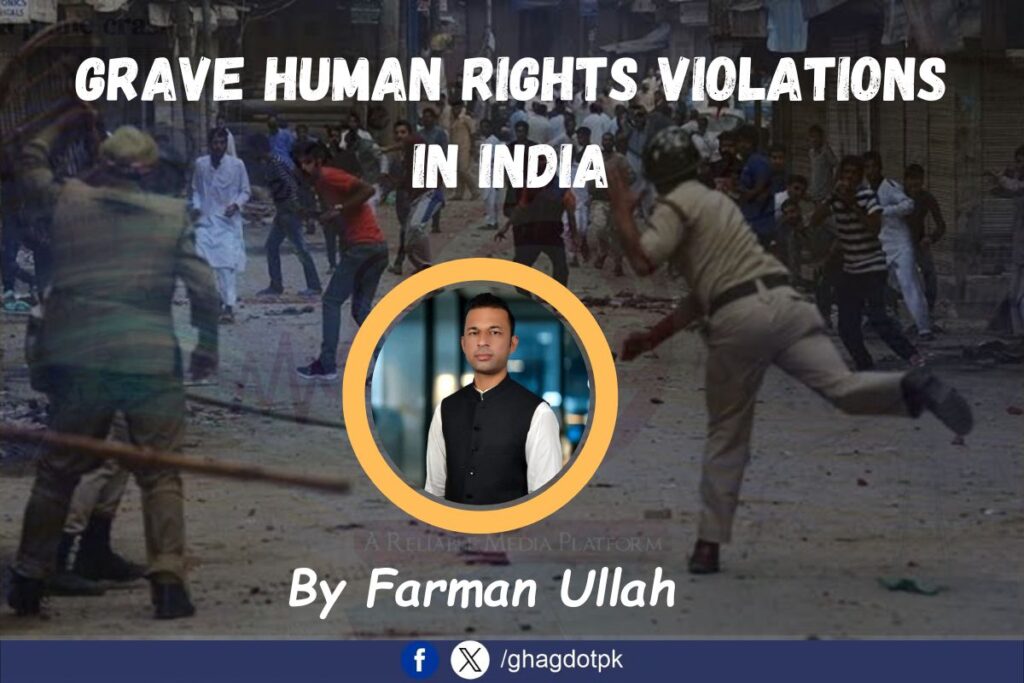By Farman Ullah
India, the world’s largest democracy, has a complex and concerning human rights record. Despite its growing economy the country continues to grapple with numerous human rights issues, including violence, discrimination, and systemic injustices.
One of the most significant human rights issues in India is the treatment of its Sikh minority. The Sikh movement, also known as the Khalistan movement, has been seeking greater autonomy or independence for the Sikh community since the 1970s. However, the Indian government’s response has been marked by violence and repression, particularly during the 1980s.
Operation Blue Star, a military operation launched by the Indian government in 1984, resulted in significant bloodshed and damage to the Golden Temple in Amritsar, a sacred site for Sikhs. The operation sparked widespread outrage and protests among Sikhs, who felt their religious and cultural identity was under attack.
The Indian government’s actions have been criticized by human rights organizations, such as Amnesty International and Human Rights Watch, which have highlighted the excessive use of force, arbitrary arrests, and enforced disappearances. The Sikh community has also faced discrimination and racism in various parts of the country, with many Sikhs feeling their unique identity and culture are not recognized or respected.
Another significant human rights concern in India is the treatment of its marginalized communities, including Dalits, Adivasis, and Muslims. These communities have faced systemic injustices, including discrimination, violence, and economic exclusion. The Indian government’s response to these issues has been inadequate, with many communities continuing to face significant challenges in accessing basic rights, such as education, healthcare, and employment.
The use of excessive force and arbitrary detention by Indian security forces is also a major concern. The Armed Forces Special Powers Act (AFSPA), which grants special powers to security forces in certain areas, has been criticized for its draconian provisions, which allow for the use of lethal force and arbitrary detention without accountability.
India has a poor record on protecting the rights of women, children, and LGBTQ+ individuals. Violence against women, including domestic violence, rape, and acid attacks, is widespread, with many cases going unreported or unpunished. Children in India also face significant challenges, including child labor, child marriage, and lack of access to education and healthcare.
India’s human rights record is a cause for concern. The treatment of its Sikh minority, marginalized communities, and the use of excessive force and arbitrary detention by security forces are just a few examples of the grave human rights violations that exist in the country.






